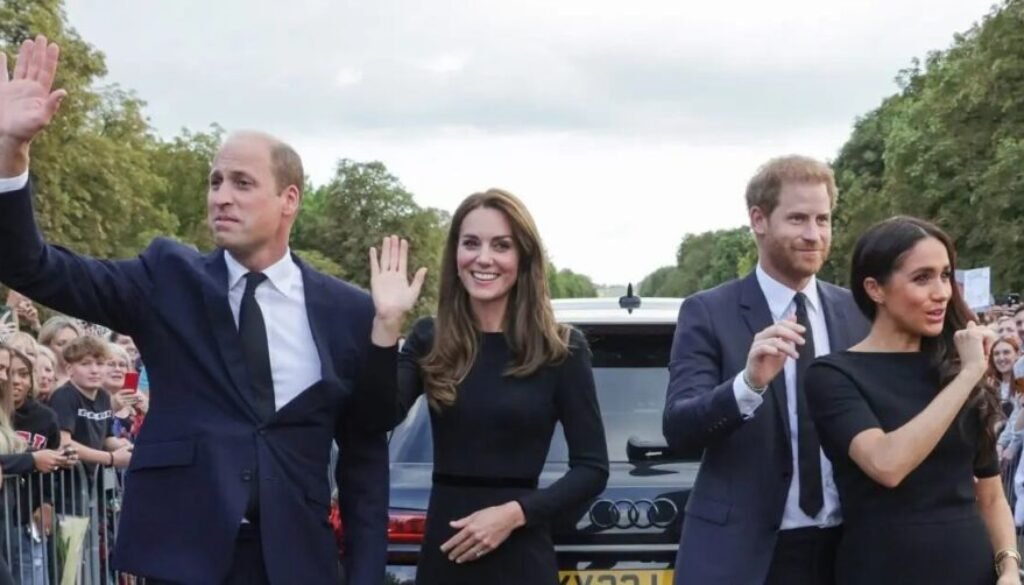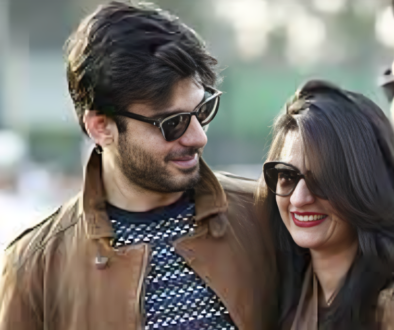For most desis, the British royals merit no real opinion, other than an afterthought
You may have devoured every minute of The Crown, or you may loathe them with sulphurous passion. Or you may be as indifferent to them as a cockroach is to the terrified screams of, well, you. But wherever on the fan spectrum you fall, the royal family is here to stay.
Despite their uncertain circumstances, the organization’s two most prominent figures are facing severe health challenges. One of them has had his infamous interview disaster captured for eternity in a Netflix movie. Meanwhile, the two individuals who were once seen as outliers in the family have departed to pursue documentary filmmaking and pen resentful memoirs.
Whether battling cancer or labeled as black sheep, the majority of South Asians couldn’t care less about this highly privileged family. While Princess Diana and the late Queen were widely adored figures, for the average Pakistani who grew up digesting Pakistan Studies textbooks, the monarchy isn’t an institution worthy of admiration.
Critics like Fariha Khan, who works in Reading’s charity sector but hails from Karachi, view the royal family as nothing more than symbolic figures who contribute little to the daily lives of UK citizens. Instead, they see them as sponging off taxpayers, residing comfortably behind the walls of their opulent residences.
The fact that the royal family relies on taxpayer funds ensures they won’t garner universal love. When considering the grave injustices faced by Muslims worldwide, particularly in places like Palestine, the royal family’s importance diminishes even further for South Asians living in the UK. As one British Pakistani anonymously noted, while expressing sympathy for Kate’s situation, the stark reality is that she has access to privileged healthcare funded by taxpayers, while many struggle to obtain basic medical care due to NHS defunding.
For many young British Pakistanis, the royal family barely registers on their radar. They acknowledge their existence but don’t harbor strong opinions beyond a passing remark about enjoying their weddings. Even discussions about weddings can devolve into critiques about fashion choices, such as Meghan’s wedding attire, ultimately leading to dismissive sentiments about the monarchy’s relevance.
Indeed, in the six years since Meghan wore the infamous bedsheet, her transgressions have extended far beyond mere fashion faux pas and jewelry choices. A quick perusal of British tabloid The Daily Mail, known for its exhaustive coverage of royal affairs, paints Harry and Meghan as the vilest beings to have graced Earth. Interestingly, many family-oriented Pakistanis, who typically steer clear of Islamophobic right-wing press, share similar sentiments about the Duke and Duchess of Sussex, albeit for reasons unrelated to race.
According to one anonymous British-Pakistani social worker, Meghan could have served as an inspiration, bridging the gap between minorities and the aristocracy. Raised in London within a traditional Pakistani household, she expressed disappointment, stating, “As a person of color, I’m very disappointed. She could have been a beacon of hope, demonstrating that we deserve acceptance and representation. We, after all, contribute to the royal family through our taxes – she should have understood that public scrutiny was the price to pay.”
While Kate is universally lauded as the epitome of a perfect daughter-in-law, this social worker highlighted how navigating cultural clashes is a daily reality for Pakistani women. “I’m from Bihar, married to someone from UP,” she revealed. “Despite speaking the same language, I had to make many compromises and adjustments. Meghan should have been capable of doing the same. I firmly believe that women shape the household. Coming from a broken home herself, Meghan simply doesn’t grasp it.”
When it comes to opinions on the Sussexes, this sentiment is far from unique. A personal assistant from Slough didn’t hold back in expressing her view: “Meghan is the worst thing that has happened to the royal family,” she asserted. “Some argue that Harry made the right choice in distancing himself from his family, so why not just do it quietly? Harry has consistently blamed the media for his mother’s death, yet he continues to court media attention! I think he’s delusional.”
However, amidst the prevailing skepticism, there are still those who recall Meghan’s early philanthropic efforts with fondness. These individuals tend to support causes and individuals that are criticized by tabloids.
“Overall, the royal family may pose an economic burden on society, but I admire Harry for his courage in breaking away from tradition,” remarked an anonymous science teacher of Pakistani descent. “As for Meghan, it’s clear that she’s targeted by the right-wing media in the UK, so she has my support, especially when she engages with Muslim communities, such as when she visited a Muslim kitchen and cooked alongside women wearing hijabs.”
Even those who claim indifference towards the royal family often find themselves empathizing with a woman who feels alienated from her in-laws. “I haven’t cared about the royal family for a while, but the way the media gossiped about Kate was absolutely disgusting,” remarked Ema Ahmed, a resident of Buckinghamshire with Bangladeshi roots. “It’s no wonder Harry decided to leave with Meghan! The British media treat the daughters-in-law of the royal family very poorly.”
One thing is certain: given the evident toxicity of tabloid journalism, an autobiography filled with melancholic anecdotes about being allocated the smallest room in Sandringham (yes, Harry, we’re talking about you) is unlikely to be embraced by the public.





